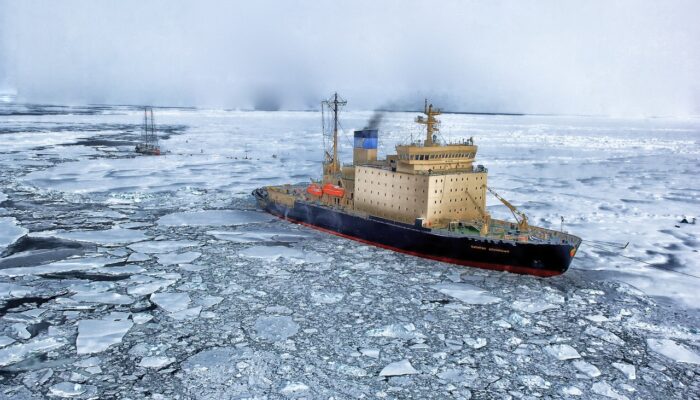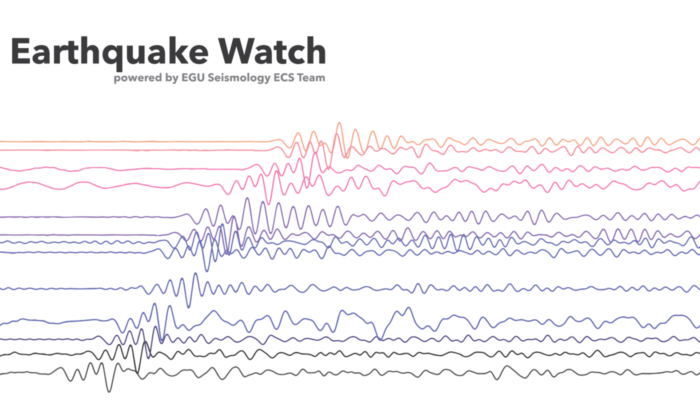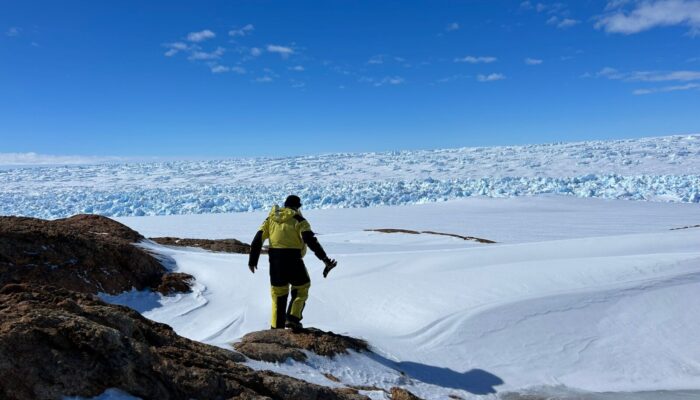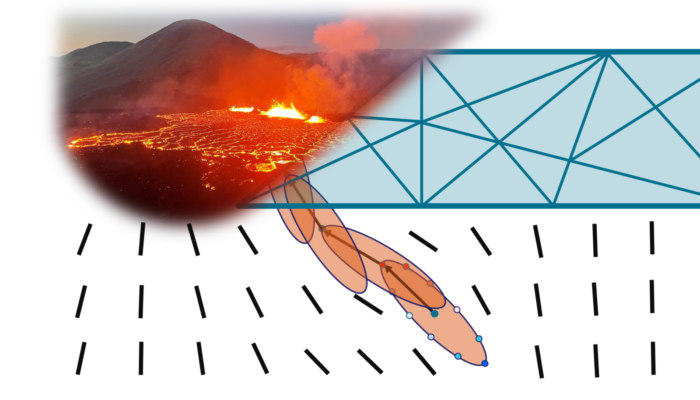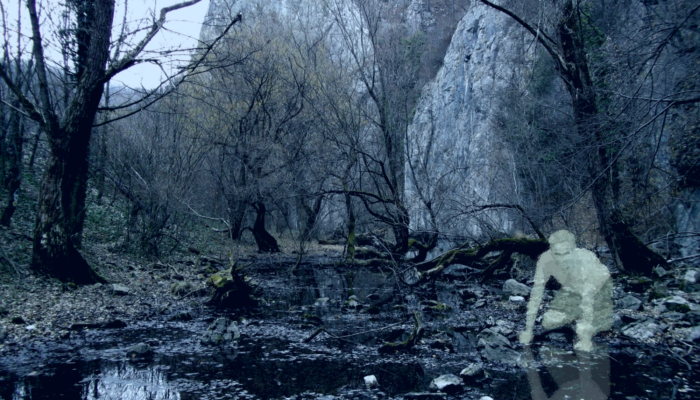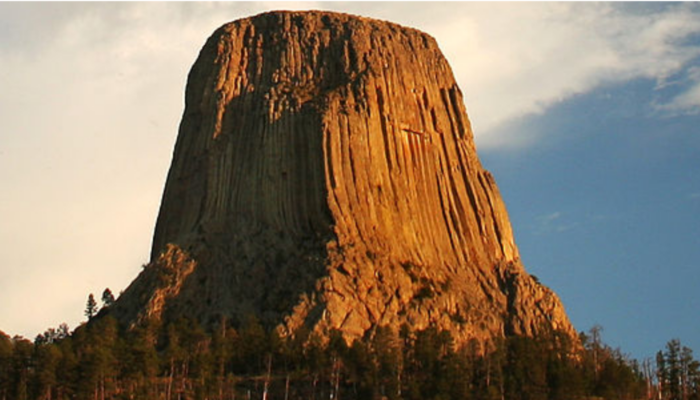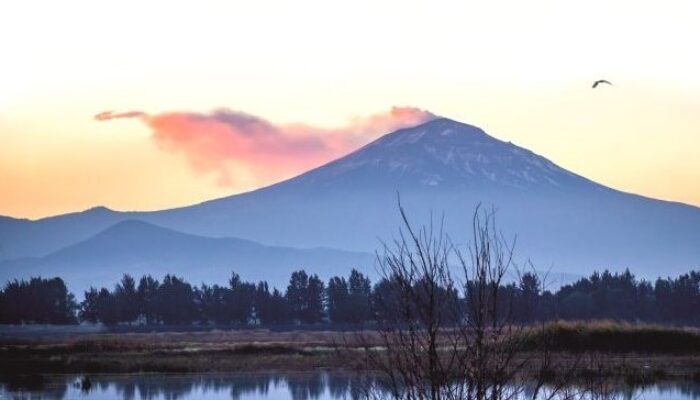Increased maritime transport in the Arctic, facilitated by the reduction in sea ice cover, is causing tremendous harm to an already vulnerable part of the world. Insufficient regulation of Arctic shipping has detrimental environmental effects on a global scale. These effects include, e.g. underwater noise pollution, oil spill risk and threats to the global climate. But did you know what role regul ...[Read More]
If you didn't find what you was looking for try searching again.
Seismology
Earthquake Watch: Seismicity in the Reykjanes Peninsula, Iceland
For this Earthquake Watch we are very happy to have Yesim Cubuk-Sabuncu write about the seismicity around the recent eruptions in the Reykjanes Peninsula, Iceland! Yesim is a postdoctoral researcher in seismology at the Icelandic Meteorological Office, Service and Research Division since 2019. She obtained her Ph.D. in Geophysical Engineering at the Istanbul Technical University, Turkey in 2016. L ...[Read More]
Geodynamics
Unveiling the Secrets of the Deepest Inland Trough: The Denman Terrestrial Campaign
Greetings from the heart of Antarctica! This week on the EGU Geodynamics blog, we are thrilled to share an exclusive insight into the groundbreaking Denman Terrestrial Campaign. Live from the icy expanse of the white continent, a team of geophysicists—Shyla Kupis, Dr. Lu Li, Dr. Mareen Lösing, Dr. Coti Manassero, Dr. Tobias Stål, and Dr. Kate Selway—will take you on a journey through their remarka ...[Read More]
Natural Hazards
Environmental (non-)migration: Whose security is at stake?
Migration is commonly perceived as a strategic response to address the repercussions of environmental threats and climate change. The International Organization for Migration defines ‘environmental migrants’ as those individuals who alter their place of residence due to a sudden or progressive change in the environment that adversely affects their lives or living conditions. Conversely, those who ...[Read More]
Natural Hazards
Behind the scenes: The EGU Natural Hazards Division Blog Editorial Team unveiled!
2023 draws to a close. Looking back, our NH Division Blog has rolled out 20 different posts! We’ve chatted with awesome medallists, tackled current challenges in natural hazards, and showcased key projects and activities in the field. But who are the lovely and creative minds behind this? In this year’s final post, we’re going to find out together. The Blog Editorial Team is cu ...[Read More]
Seismology
What is Distributed Acoustic Sensing?
In this blog we give a succinct introduction to Distributed Acoustic Sensing for the starting seismologist, or the interested reader. The blog is by no means a complete overview and serves as a starting point for you to understand DAS and get started with the data. It was written by SM ECS members Ana Nap and Katinka Tuinstra. By now, Distributed Acoustic Sensing (DAS) is a pretty widely kn ...[Read More]
Geodynamics
Modelling Magma Propagation in Three Dimensions – Or: How I Learnt to Stop Worrying and Love Simplicity
The crisis unfolding these days in Grindavík, Iceland reminds us of how important it is to forecast volcanic activity. Predicting the outcomes of volcanic unrest, or a magmatic intrusion making its way towards the surface, essentially amounts to three questions. Will there be an eruption? How much time before it starts? Where exactly will the eruption occur? Answering any of these questions is a d ...[Read More]
GeoLog
Swamps may be considered spooky, but is there more than meets the eye?
Swamps are spooky. This is the prevailing notion from the depiction of wetlands – the saturated lands of swamps, bogs, and fens – in the media. From the folktales of Will-o’-the-Wisps guiding travellers astray to the many, many swamp monsters of Scooby Doo, the sign is clear: a scrawled “stay away from here” thrust deep in the mud, writ by centuries of storytellers. As a reputation it’ ...[Read More]
Tectonics and Structural Geology
Geomythology. Devils tower: born from hell?
Geomythology. Devils tower: born from hell? Following the previous two posts (Giant’s Causeway – the mythical stone way; Columnar Basalts and why Hexagons are nature’s favourite shape) it is clear how columnar joints are quite common around the globe, and they create such a marvelous natural environment that inspired amazing myths and legends: the Devils Tower myth is one of them. Devils Tow ...[Read More]
Stratigraphy, Sedimentology and Palaeontology
Survivors! Resilience and adaptations of freshwater ostracodes in ancient Lakes Petén Itzá (northern Guatemala) and Chalco (central Mexico) to climate and environmental changes over the last 80,000 years
The North American Tropics hosts lakes of diverse origins and limnological characteristics, which are located along a broad altitudinal gradient, from 0 to 5675 masl. The region possesses several ancient lakes that have accumulated sediments continuously, in some cases for >400,000 years. Study of those lake deposits has enabled scientists to infer past climate and environmental conditio ...[Read More]

